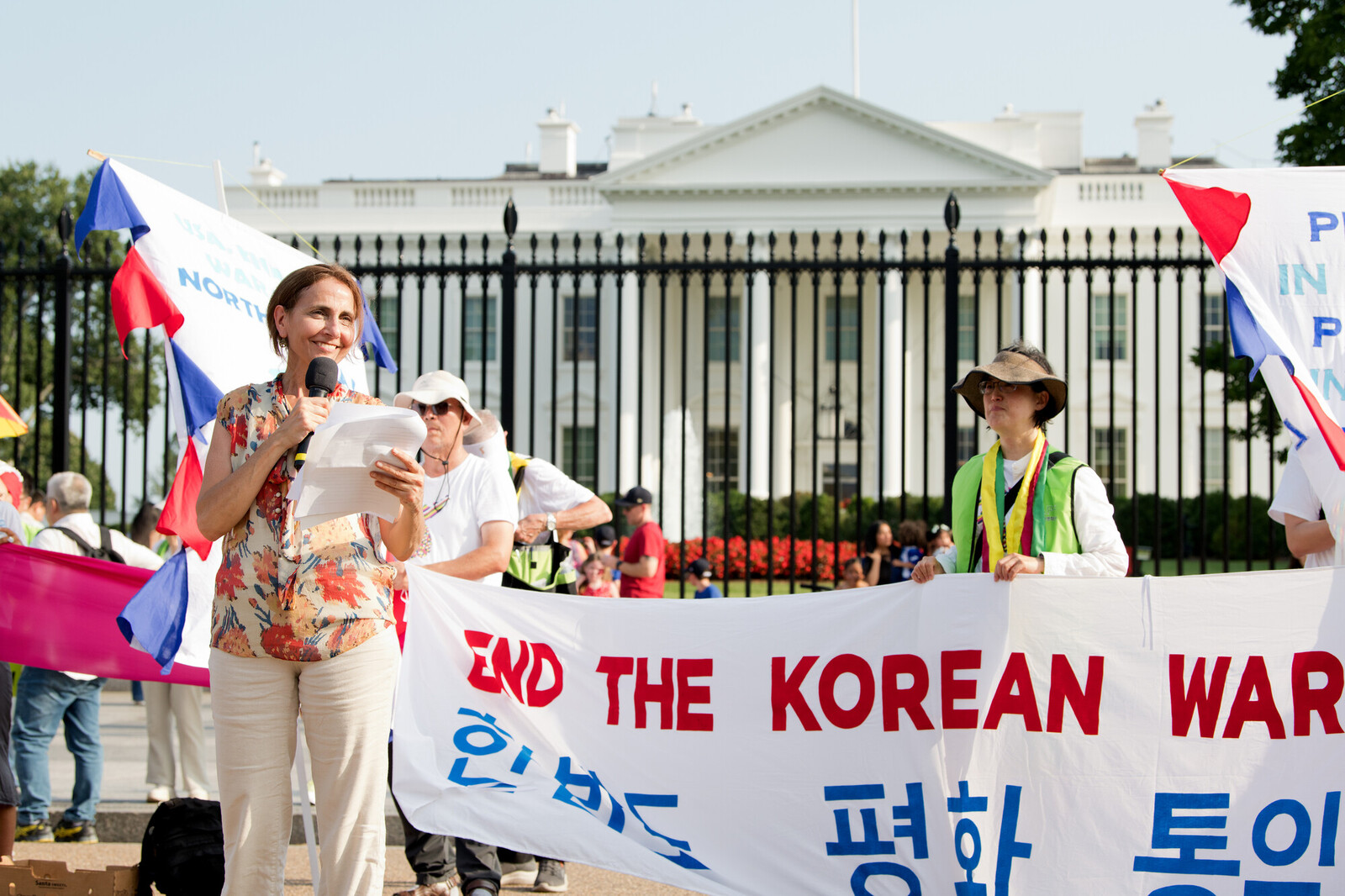
Photo: Bryan Vana/AFSC
Global peace and diplomatic engagement are important for all of us. Yet with increasingly dire headlines from conflict zones around the world, it can be hard to remember that many people in the U.S. support peaceful interventions and nonviolent engagement.
That’s why the results of a new poll on engagement with North Korea and China are so reassuring: Even in difficult times, this research shows that a majority of adults in the U.S. support engagement with leaders from these nations on a variety of issues. Even more encouraging is the continuation of much of this support since AFSC began polling on these issues in 2021.
This year, the poll ran online between Jan. 23 - 25, 2024, among 2,078 U.S. adults (ages 18 and over) and was conducted by The Harris Poll on behalf of AFSC.
Here are some of the key takeaways:
-
73% of adults in the U.S. think that the federal government should work with North Korea to repatriate U.S. service members’ remains. Since 2021, majorities of U.S. adults have supported the return of U.S. service members’ remains that were left in North Korea after the Korean War (70% agreed in 2021 and 76% agreed in 2023). Additionally, two-thirds of U.S. adults (67%) agree that the U.S. and North Korea should work to reunite Korean Americans and their North Korean family members.
-
69% of adults in the U.S. believe the U.S. president should offer to hold meetings with the North Korean leader. This has held steady since 2023 (68%). Additionally, a plurality (48%) of U.S. adults agree that the U.S. government should end the Korean War by signing a peace agreement. While this is down from the 52% high we saw in 2023, it is still significantly above the 41% who agreed with this statement when we first started asking this question in 2021.
-
62% believe the U.S. government should engage in dialogue with China as much as possible to reduce tensions. While this is also down from a high of 67% in 2023, it is at the same level we saw in 2021.
-
55% of U.S. adults agree that we should lift sanctions if they damage economic activity and the livelihoods of ordinary citizens. This is down from 58% in 2023, but still higher than the 49% support for lifting harmful sanctions that we saw back in 2021. In addition, 50% favor lifting sanctions if they hinder cooperation on climate change. This has held steady since we first asked this question in 2023.
-
Age and gender did seem to impact public opinion on sanctions, with men and younger adults (18-34) significantly more likely to favor the use of sanctions even when they are illegal under international law and can hurt access to food and medicine. For example, 48% of men supported sanctions in these cases compared to only 33% of women. And 44% of U.S. adults ages 18-34 supported such sanctions compared with just 37% of adults ages 65 and older. This presents an opportunity for advocates to move the needle on the issue of sanctions by engaging with these groups.
These high levels of support for diplomacy, cooperation, and nonviolent engagement should give advocates – and anyone who cares about building a more peaceful world – a lot of hope. We have made a lot of progress on these issues working together in the past and, with our continued efforts, we can grow that support.
Interested in the full results of the survey? You can read the study report on The Harris Poll’s website.
Want to get involved? Join AFSC, partners, and people across the country for Korea Peace Advocacy Week March 18-24.
